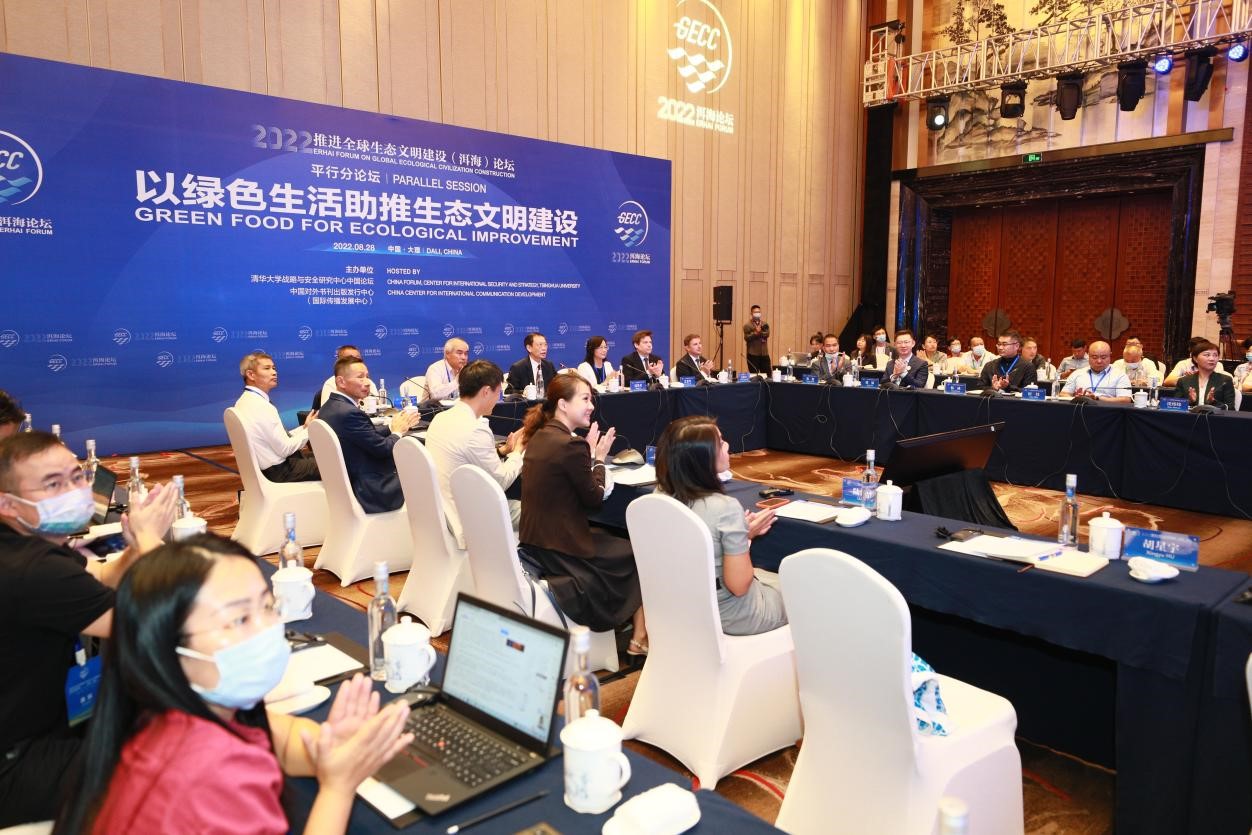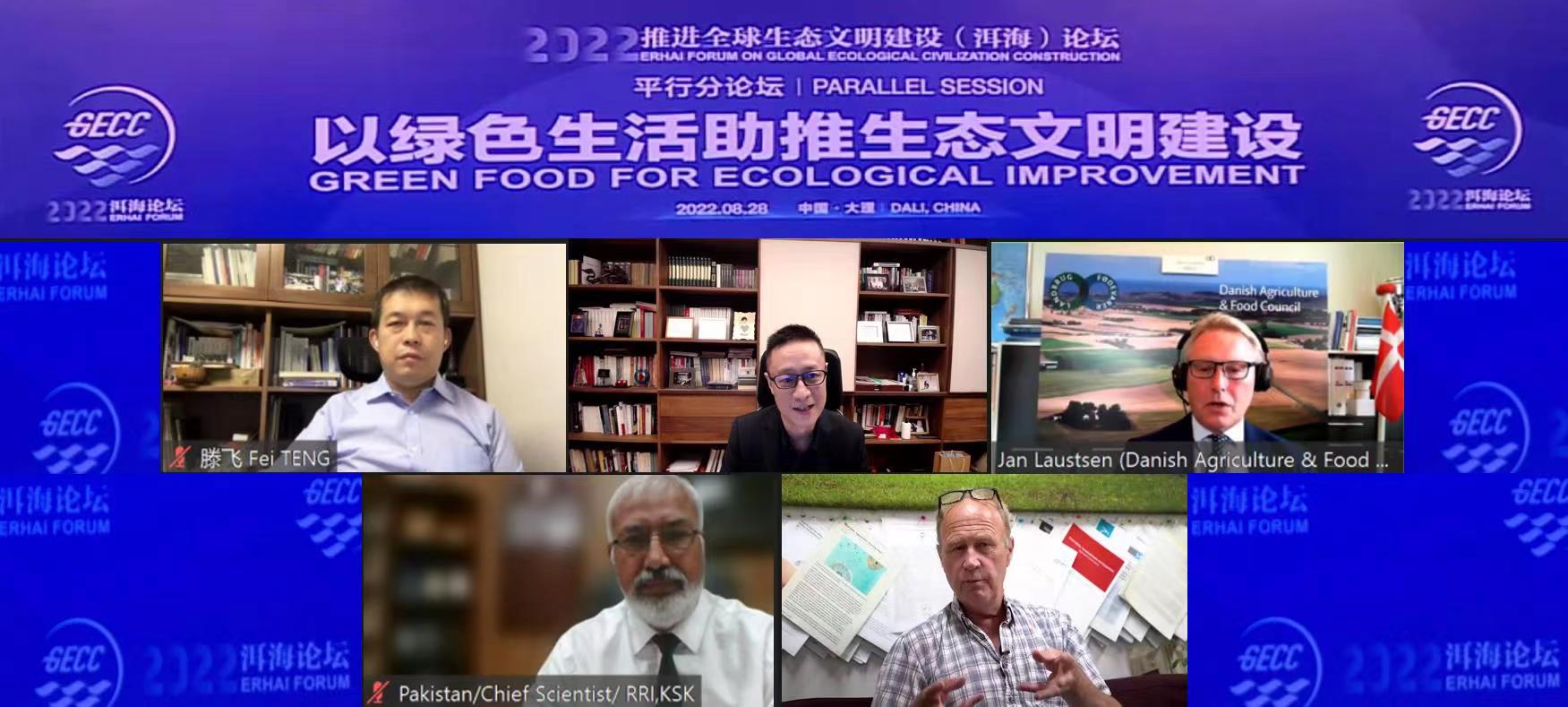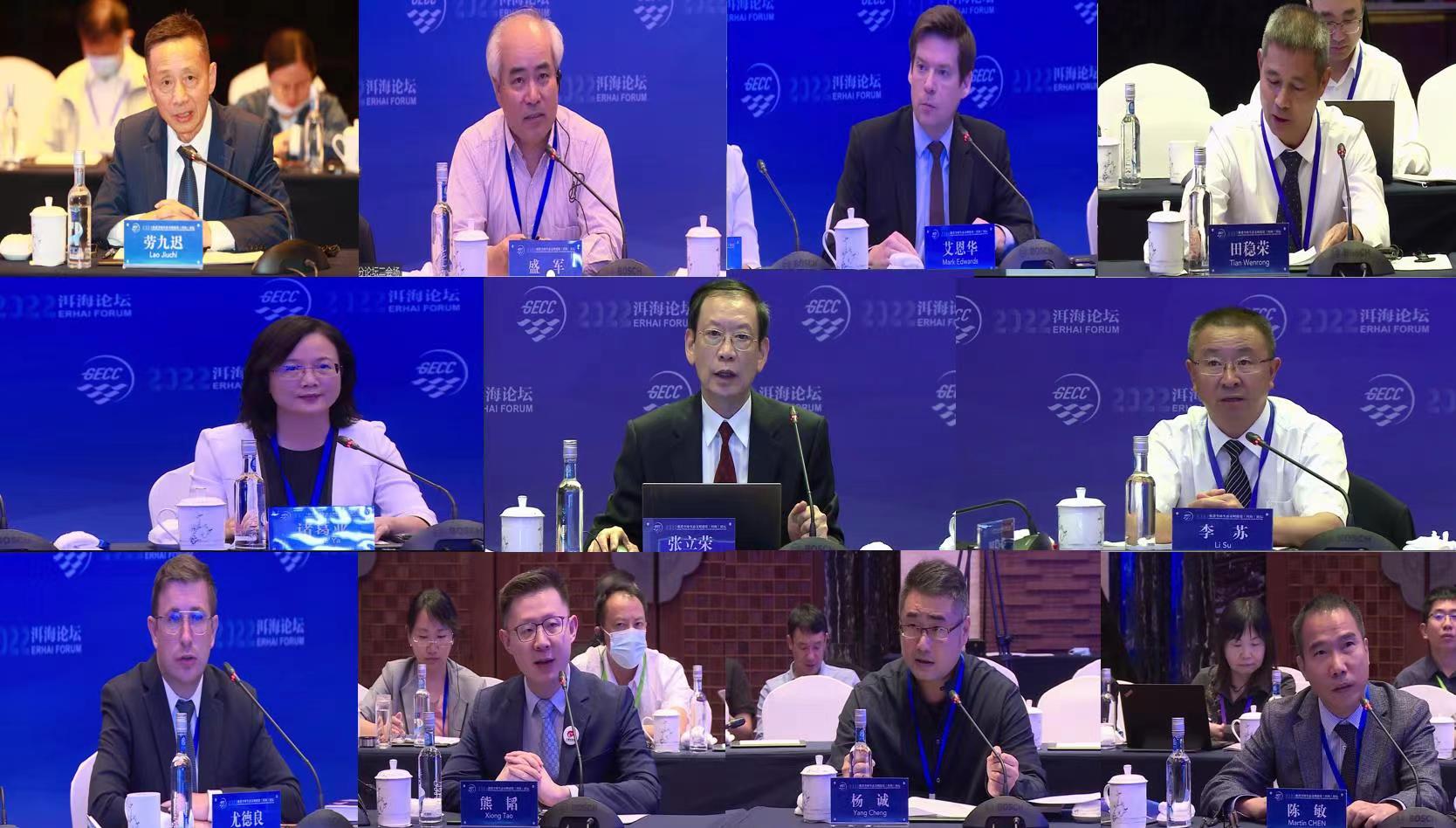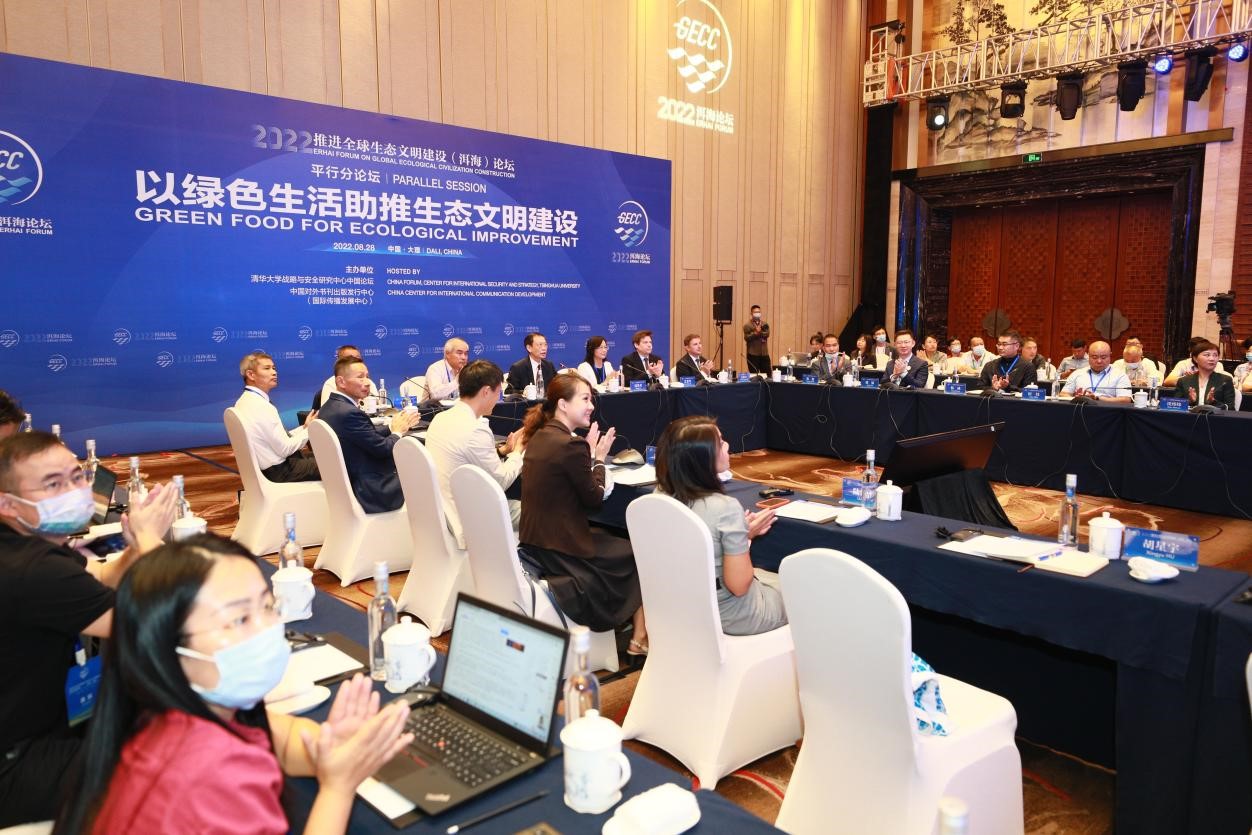On August 27-29, the Erhai Forum on Global Ecological Civilization Construction 2022 was held in Dali, China. Themed “Working Together to Build a Shared Future for All Life on Earth,” the event aimed to promote global ecological civilization and showcased China’s ecological outlook and biodiversity achievements.

On August 28, a parallel session titled “Green Food for Ecological Improvement” was jointly hosted by China Forum under the Center for International Security and Strategy of Tsinghua University and the China Center for International Communication Development. Moderated by China Forum Secretary-General Zhang Lirong, the sub-forum convened an international panel to discuss green agriculture, green food, and green lifestyle.

Speakers joining via video link
In his keynote speech, Eric Li, vice chairman of China Forum, noted that global climate and biodiversity efforts have been undermined by geopolitical competition and changes in major power relations over the past year, and it is now increasingly urgent to forge a more reasonable and effective consensus on global climate cooperation.
Sheng Jun, former president of Yunnan Agricultural University, presented Yunnan’s successful experience in green economy and green agriculture. Li Su, executive vice mayor of the Dali Bai Autonomous Prefecture, introduced Dali’s achievements in green farming, green energy, and watershed management. Zhuge Ya, deputy publicity head of Guilin Municipal CPC Committee, introduced the ecological initiatives and achievements in Guilin, sharing how the city has successfully integrated ecological and urban development, which has led to the betterment of the lives of local people.
Teng Fei, deputy director of the Institute of Energy, Environment and Economy at Tsinghua University, turned to the potential of food systems for emissions reduction. As per capita food emissions are significantly higher in developed countries than in developing ones, the former ought to take on common but differentiated responsibilities and take the lead in cutting emissions, he said, adding that in addition to reducing productive emissions from farming and aquaculture, low-carbon food consumption is also essential to reach net zero.
Tian Wenrong, chairman of Changninghong Tea Group, said that the company’s green commitment has improved not only the quality of its tea but also the livelihoods of the farmers. Xiong Tao, vice president for international development at BGI, presented the group’s projects to conserve biodiversity and to reduce emissions in rice cultivation through genetic technology. Representatives from Diageo plc introduced the company’s sustainability initiative and introduced how it has leveraged its technological strengths, effective investment and management as well as synergies with the government to promote green living.
Jan O. F. Laustsen, director for trade and market relations at the Danish Agriculture and Food Council, introduced the history, standard-setting, institutional development and international cooperation of organic food in Denmark. Lao Jiuchi, the council’s chief representative in China, shared the sustainability practices of organic food and fine farming in Denmark.
Syed Sultan Ali, chief scientist at Ayub Agricultural Research Institute, explored the significance of developing countries in global rice cultivation and export. He also shared Pakistan’s achievements in improved rice cultivation, and expressed the willingness to continue to work with China and other countries in green farming.
Andrzej Juchniewicz, chief representative of the Polish Investment and Trade Agency’s China office, presented the developments of Poland’s green food and agricultural products from the perspectives of the country’s geographical advantages, talent reserve, industry norms, and international cooperation and investment. He shared the country’s innovative paths toward green lifestyle, and expressed the hope to promote cooperation between China and Poland in this field.
Sir Tim Smit, founder of the Eden Project, believes that machinery and technology are not magic formula—happiness and livability are important sources of the sense of belonging. On top of creating green spaces, it is more crucial to raise green awareness and promote the harmonious coexistence between human beings and nature, he said. Green living requires not only the push by the government, but also the joint efforts of individuals and communities.

Speakers onsite
Around the theme of the parallel session, the panelists shared their insights from different perspectives on the connotations and practical paths of green living to promote the construction of an ecological civilization. The robust discussions have fostered a deeper understanding of the importance of green living and international cooperation for protecting the environment, achieving sustainability, addressing climate change, and conserving biodiversity.

